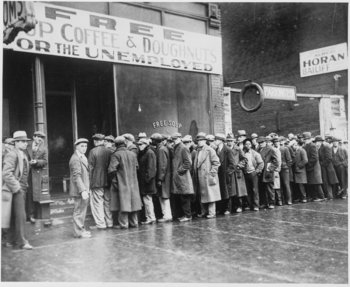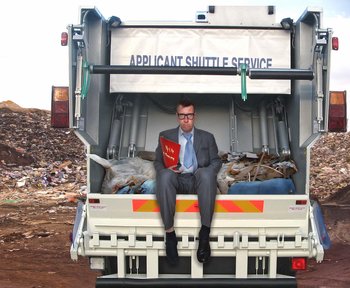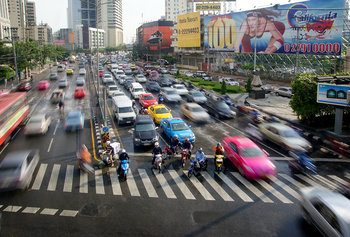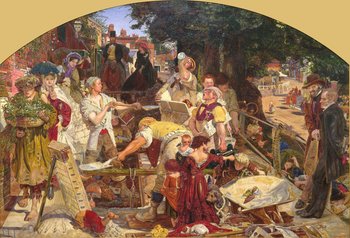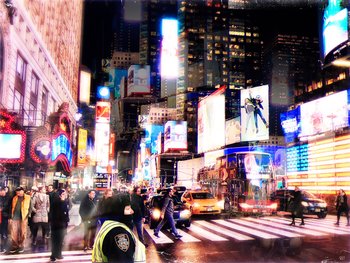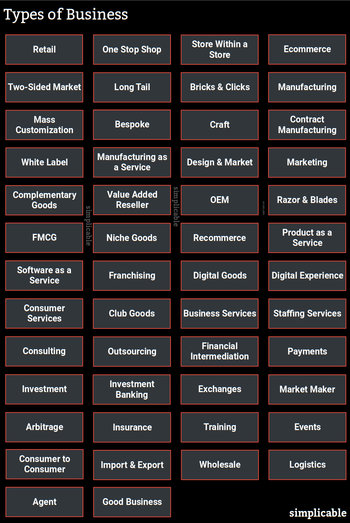|
| |
Unemployment is when an individual who is willing and able to work is not working. This is wasteful as human potential and productivity goes underutilized. Unemployment can also cause much social and personal misery. The following are common types of unemployment and joblessness.
Classical Unemployment | Cyclical Unemployment | Discouraged Workers | Disguised Unemployment | Frictional Unemployment | Full Employment | Hidden Unemployment / Joblessness | Involuntary Unemployment | Long-Term Unemployment | Lumpenproletariat | Natural Unemployment | Seasonal Unemployment | Structural Unemployment | Underemployment | Voluntary Unemployment |
Classical UnemploymentClassical unemployment is unemployment caused by high wages. This is based on the naive observation that firms would be willing to employee all people if wages were low enough. In the real world, people have minimum expectations and societies have regulations such as a minimum wage.Cyclical UnemploymentUnemployment caused by temporary economic problems such as a recession.Discouraged WorkersDiscouraged workers are people who were looking for a job but gave up. This isn't typically counted in unemployment statistics but is really unemployment in terms of its impact on people and society.Disguised UnemploymentA situation where people are employed at near zero productivity. For example, a communist nation may technically achieve zero unemployment by assigning people busy work such as sweeping the street with a broom or directing traffic in parking lots.Frictional UnemploymentThe unemployment that occurs because people take some time to find a job. For example, graduating students are technically unemployed until they find their first job. A certain level of frictional unemployment is healthy as people will naturally take some time to find work.Full EmploymentFull employment is a situation where everyone who is able and willing to work is working. This is somewhat rare and is predicted to cause intensive competition for workers, rising wages and inflation. Hidden UnemploymentHidden unemployment includes discouraged workers and other people who are able and potentially willing to work but are jobless.Involuntary UnemploymentInvoluntary unemployment occurs when an individual is willing to work at the prevailing wage but can't find work.Long-Term UnemploymentLong-Term unemployment includes anyone who has been unemployed for a significant period of time, usually defined as more than six months. LumpenproletariatLumpenproletariat is a Marxist theory that identifies some people as unemployable. Communism is centered around the interests of the working class and is completely hostile to the lumpenproletariat. Natural UnemploymentNatural unemployment is frictional unemployment + structural unemployment. In practice, there is nothing "natural" about structural unemployment -- it is a major problem that can be solved. Seasonal UnemploymentUnemployment related to seasonal work such as construction workers in a Northern climate who are unemployed during the winter months.Structural UnemploymentStructural unemployment is unemployment caused by deep problems in a society. In an advanced economy, structural unemployment mostly relates to a skill shortfall such as an economy that has 4 million coding jobs but only has around 1 million people who are good at coding. In a developing economy, structural unemployment relates more to a lack of economic development such as infrastructure shortfalls that prevent an economy from employing everyone.UnderemploymentUnderemployment refers to people who aren't working full time or who are working below their skill level. For example, a person with an advanced science degree who is working at a restaurant part-time would be considered underemployed.Voluntary UnemploymentVoluntary unemployment is where unemployed workers are unwilling to take jobs that are available due to wages or mismatch with their career. For example, a software developer who is unwilling to pick fruit for a low wage.
Economic Problems
This is the complete list of articles we have written about economic problems.
If you enjoyed this page, please consider bookmarking Simplicable.
© 2010-2023 Simplicable. All Rights Reserved. Reproduction of materials found on this site, in any form, without explicit permission is prohibited.
View credits & copyrights or citation information for this page.
|



